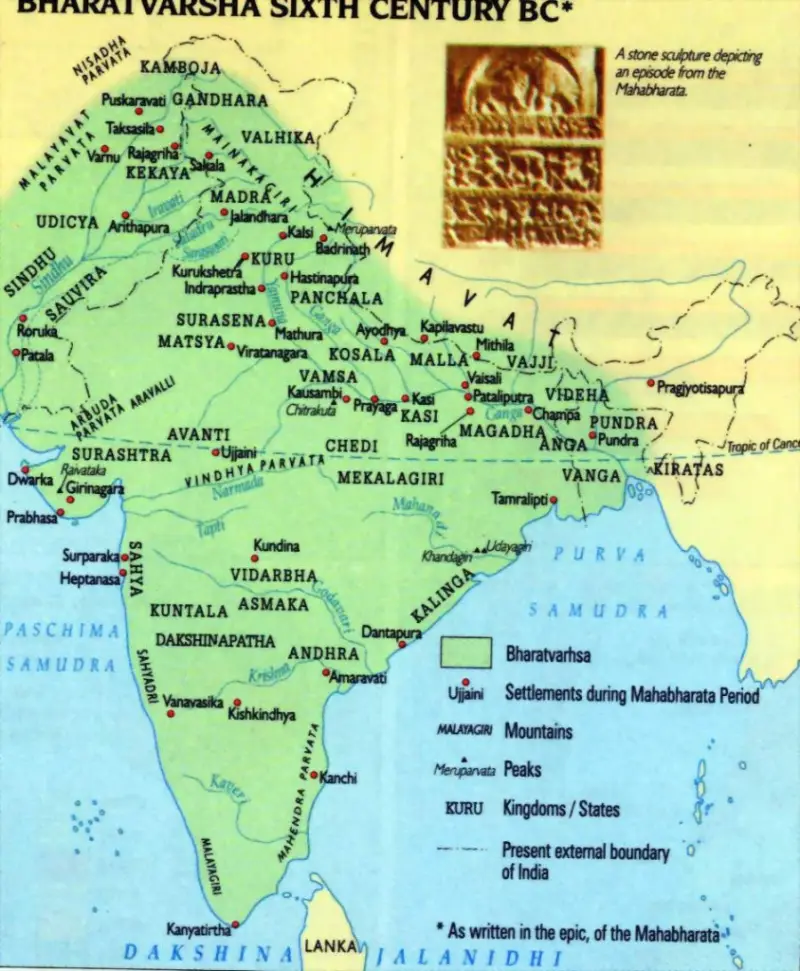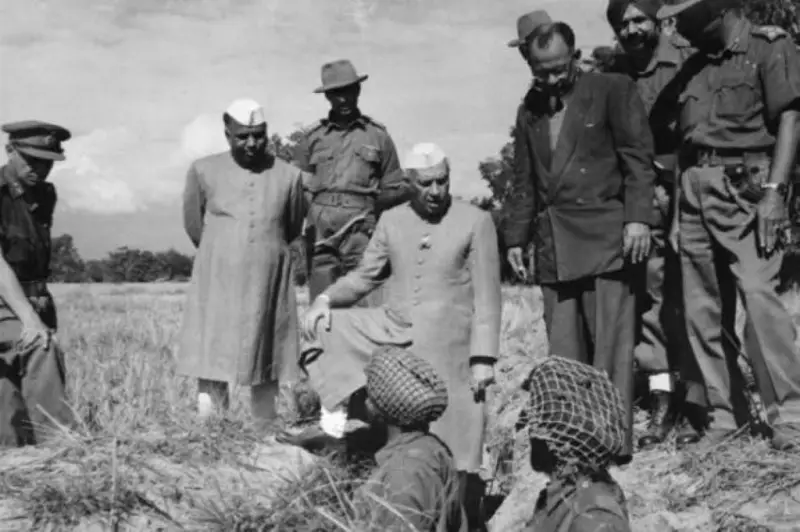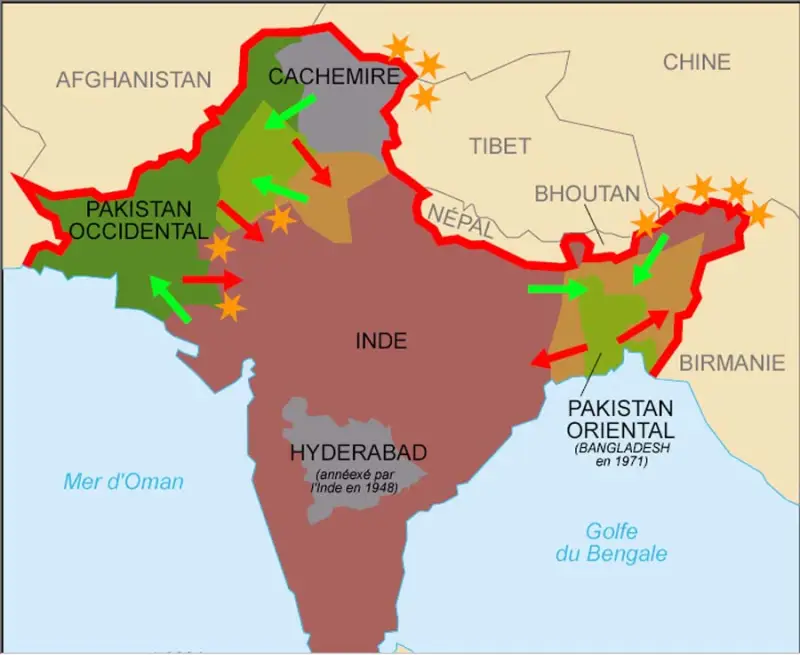Today – India, tomorrow – Bharat. Without the "saint" Jawaharlal Nehru

Election "Bharat"
In the second ten days of April, parliamentary elections will start in India and will last until the beginning of June. The elections will be held against a very unique propaganda and mental background. Few people noticed that not long ago the Indian authorities officially announced the transformation of the country into the ancient Indian “Bharat”.
It seems that in order to better justify such global changes, it was decided on the eve of the elections to subject none other than Jawaharlal Nehru (1889–1964) to extremely harsh criticism. One of the founders of modern India, the country's prime minister from 1947–1964.
The campaign to combat the cult of his personality should also cover a number of areas in almost all of India’s neighbors, except Myanmar. Among others, the head of the Indian Ministry of Foreign Affairs, Subrahmanyam Jaishankar, a representative of the ruling (since 2018) right-wing nationalist Bharatiya Janata Party, is involved in a series of events.
The arrows of propaganda are aimed at Jawaharlal Nehru, who was one of the first leaders of the Indian National Congress party, which in 1947 achieved the country's independence from Great Britain. But not only that.
Having lost the Muslim provinces that now exist as independent Pakistan and Bangladesh, India managed to achieve reunification with five French and four Portuguese coastal regions in Hindustan. This happened in the mid-50s and early 60s of the XNUMXth century.
Main strike direction
In addition, under the leadership of J. Nehru, it was prevented in 1947–1948. a Western-inspired attempt to secede the vast state of Hyderabad in the heart of the country from India. Hyderabad was a British protectorate - a princely state until 1948 inclusive.
The direction of attack, or rather the main blow to the reputation of Jawaharlal Nehru, is his alleged “indisputable errors in assessing the Chinese threat in the 1950s and early 60s,” as well as Nehru’s commitment to leftist ideology “to the detriment of patriotism and national interests.”
India's current foreign minister, Subrahmanyam Jaishankar, claims that Nehru "did not hide the fact that on important international issues he maintained a 'China first' position, considering it important to ensure the international development of his neighbor."
At the same time, according to the diplomat, “Nehru downplayed the prospects of a Chinese attack, which happened in 1962, and did not listen to warnings.” Both the minister and other critics of J. Nehru made other complaints against him - for example, for his indecisiveness in the fight against separatists and orthodox communists.
All these accusations are absurd based on the above-mentioned examples of the activities of J. Nehru. In more detail, it was India that contributed to the inclusion of the PRC in international diplomacy at the end of 1951.
It was then, on the initiative of J. Nehru, officially approved by J.V. Stalin, that negotiations on an armistice in Korea with the participation of the PRC began in Panmenjom. And in July 1953 they ended with the long-awaited armistice agreement, which is still in force today.
Our home is India
Jawaharlal Nehru did not at all downplay the growing “Chinese threat,” especially after Beijing eliminated pockets of separatism in Tibet in the 1950s. And it is no secret that in the nearby region of India, a “Tibetan government in exile” has been operating for decades.
And many thousands of Tibetan refugees have been in India for a long time. Of course, these factors still bring tension to Indian-Chinese relations. But the same factors hardly confirm the thesis that J. Nehru himself ignored the “Chinese threat.”
As for the Sino-Indian War of 1962, it was caused, first of all, by the Jesuit policy of the British colonialists in border issues. The British, at the beginning of the twentieth century and in the second half of the 40s, drew such borders on Hindustan, “thanks to” which border disputes or military conflicts still “accompany” India’s relations not only with China, but also with Pakistan and Bangladesh.

J. Nehru on the India-China front, November 1962
The PRC's aggression against India was mainly associated with Beijing's desire to show the world its accelerated distancing from Moscow, which began at the turn of the 50s and 60s. In addition, Beijing was puzzled by the political strengthening of India in the early 60s.
This was in direct connection with the Indian Army's defeat of the Portuguese forces in 1961. And this also contributed to Beijing’s desire to politically weaken India through aggression.
The experience of the “liquidators”
There is no doubt that the PRC's aggression against India was facilitated, at least psychologically, by the fact that if India eliminated Portuguese colonialism, then in the PRC until the end of the 90s. inclusively retained the Portuguese region of Macau (Macao) in the south of the country. China made the most of it to develop economic and, since the early 80s, political ties with the West and Taiwan.
That is, Chinese pragmatism in relation to the colonial regions - at least the Portuguese - was discredited by the reunification of Lisbon's possessions in Hindustan with India. But since the reunification occurred as a result of the victory over the colonial forces, the effect of discredit was even stronger.
India's defeat in the war with China in 1962 was also due to the fact that the threat of new military conflicts with Pakistan remained. It all started immediately after the abolition of “British India”, and the first military conflict took place immediately after the creation of India and Pakistan.
At the same time, the military-political geography was such that India, until 1971, was in the grip of West and East Pakistan: the latter became the Republic of Bangladesh in 1971, not without the help of the Indian army.

This was almost immediately followed by an increase in the military-political partnership between Islamabad and Beijing, which they established shortly before the 1962 war. Therefore, a significant part of the troops and weapons were stationed on India's eastern and western border with Pakistan.
Claims against Jawaharlal Nehru are also connected with the fact that Indian ultranationalists demanded - even after Nehru - to eliminate the independence of the Himalayan Bhutan and miniature Sikkim. They were de facto protectorates of India. But Delhi rejected these calls.
Only in 1975, due to the escalation of Sino-Indian border disputes, Sikkim was included in India. Regarding the separatists and far-left rebels, their persistence is primarily due to long-standing demographic and socio-economic reasons in their respective areas of the country.
The official promotion of the Bharat ideology further strengthens all these movements. “Bharata” ignores the ethnocultural and religious specificity of almost all the outlying regions of the renewed India and regions of neighboring countries considered part of it.
Information